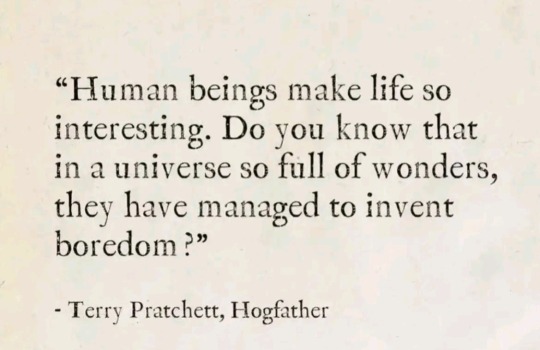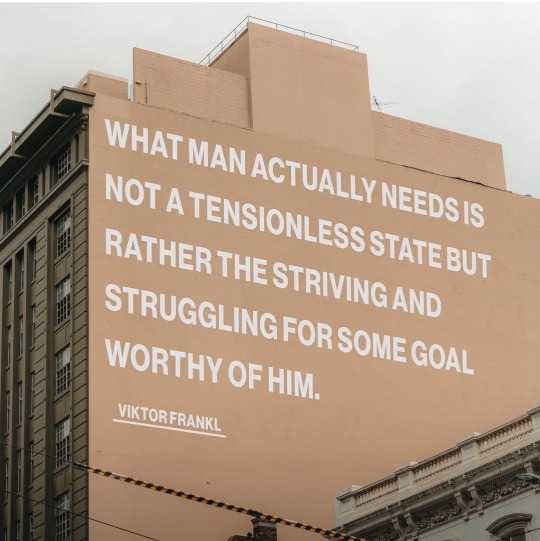Text
Find Common Ground
One gets the sense that Seneca, like many smart and active people, was often frustrated by other people. It is inevitable that someone like him—someone creating art, actively participating in government, managing properties, etc—would have regularly found his interest and his will thwarted. Perhaps a neighbor opposed some changes he was making to his land. Or an intriguing enemy at the palace sought to undermine him with the emperor. Maybe his brother jostled for an inheritance. Maybe he bumped into a rude person in the street.
These are timeless and common occurrences. And, quite naturally, they are prone to make us angry—especially if we impute the least charitable motivations on the other party. My neighbor is trying to screw me over. So and so wants my job. My brother is up to his old tricks. This guy is a selfish jerk.
When we think this way, we get angry. It’s hard not to. Which is why Seneca—from experience—said that we have to resist. Instead, we should try to go through life like a lawyer…or rather like a public defender. We must, he said, “plead the case of the absent defendant despite our own interests.” That is, really take the time to think about what is motivating other people. Take the time to act as if we are trying to help them escape punishment from the judge and jury that is the emotional and vindictive part of our mind (Oh, he really just wants what’s best for everyone. My brother doesn’t know better. This guy didn’t mean to bump into me—he’s just having a hard day). Don’t just fight to see the worst, fight to see their side.
When we do this, when we give people the benefit of the doubt—the presumption of innocence instead of the presumption of guilt and ill-motives—everything relaxes. We can forgive. We can find common ground. We can focus on what is actually important…our own behavior.
- The Daily Stoic
#the daily stoic#daily stoic#common ground#presumption of innocence#benefit of the doubt#principle of charity#public defender#seneca#angry#anger#presumption of guilt
12 notes
·
View notes
Text

#terry pratchett#hogfather#invention#invent#bored#boredom#universe#wonder#wonders#human#human being#life#interesting
128 notes
·
View notes
Text
To unconfident people, narcissism in others looks like confidence. To confident people, narcissism in others looks like a lack of confidence.
- Mark Manson
29 notes
·
View notes
Text
"An investment in knowledge pays the best interest."
- Benjamin Franklin
11 notes
·
View notes
Text

- From @dailystoic (Instagram).
16 notes
·
View notes
Text
“Men are apt to mistake the strength of their feeling for the strength of their argument. The heated mind resents the chill touch and relentless scrutiny of logic.”
— William Gladstone. (1809-1898) British statesman
207 notes
·
View notes
Text
https://www.channelnewsasia.com/commentary/video-bad-driving-car-accident-traffic-police-2289736
WHY WE CAN’T SEEM TO LOOK AWAY [FROM BAD DRIVING]
Psychologists attribute this fascination to “negativity bias”. Evolutionarily, our ancestors survived by paying attention to negative information, such as whether a strange new animal is a threat.
Today, we still spend more time and mental energy when looking at negative stimuli. Laboratory studies show we tend to learn better when punished than when rewarded. In decision-making, even when the intensity of information is equal, negative information has a greater influence than positive information on our judgements.
In other words, we are hardwired to pay more attention to bad driving. We can’t look away because such videos meet our psychological needs.
[...]
DISPLACING OUR FRUSTRATIONS ON BAD DRIVERS
Unfortunately, research suggests that venting is ineffective and may even reinforce the initial anger and frustration.
This brings up more concerns. Our perspective tends to narrow if our indignations are reinforced and biases confirmed. We interpret the same information differently and are more sensitive to negative information. We become more attuned to and are more likely to seek out evidence for bad driving.
We perceive driving in Singapore more negatively and judge it to be more unsafe than it actually is - because memories of bad driving are more readily accessible.
LEARNING TO WITHHOLD JUDGEMENT
What can we do to avoid going down this rabbit hole?
We can look at Noble Laureate Daniel Kahneman’s characterisation of how our brain works in two systems: Type 1 thinking – fast and automatic, and Type 2 thinking – deliberate and effortful.
When we rush to comment on a video or publicly shame someone on social media, we often engage in Type 1 fast thinking and intuitive decision making. The key is to guard against this trigger-happy instinct.
Instead, let’s pause, withhold immediate judgement and try Type 2 thinking. Were there environmental factors that we haven’t considered? Does the video show the full story of the incident? Is what we watch truly representative of our full driving experience or just another eye-catching entertaining clip we can shake our head at after an uneventful drive home?
Although we have a negativity bias, the documented transformational effects of positive acts and thoughts can be powerful.
Just as venting can lead to a downward spiral, acts of graciousness and considerate driving can lead to a virtuous cycle...
#psychology#negativity#negative#negativity bias#driving#bad driving#drivers#bad drivers#anger#frustration#judgment#withhold judgment#don't judge#daniel kahneman#type 1 thinking#type 2 thinking#positivity#positive#positive thoughts#downward spiral#rabbit hole#down a rabbit hole#gracious#graciousness#virtuous cycle
12 notes
·
View notes
Text
"We ordinarily think of luck as a thing outside ourselves. That time I ended up in the same city with a handsome acquaintance. That time I was driving out of town, feeling dejected at my failed search for an apartment, when I saw someone hammering in a "For Lease" sign in the front yard. That time a cab stopped just inches short of hitting me in a Manhattan crosswalk. We feel luckiest (or unluckiest) when we can clearly imagine what could have come to pass - except it didn't.
But luck is not just something outside of ourselves that happens to us. It is also stitched into us. We are each one in a million-or more literally, one in 70 trillion, which is the number of unique genetic combinations that could have resulted from any two parents. And each of our parents' genomes was a one in 70 trillion event, out of all the possible combinations of their parents' DNA, and so on and so forth, back into human history. Each one of our genomes is the ultimate result of generations upon generations of random events that could have gone another way. There is no part of our genome for which we can take credit; no bit of our DNA over which we exerted control.
All of your genome, then, can be considered a form of luck in your life..."
Kathryn Paige Harden, 'The Genetic Lottery: Why DNA Matters for Social Equality'
2 notes
·
View notes
Text
"To be astonished at everything, of course, is silly, while to be astonished at nothing is much more handsome, and for some reason is recognized as good form. But surely it's not like that in reality. In my opinion, it's much sillier to be astonished at nothing than to be astonished at everything. And what's more: to be astonished at nothing is almost the same thing as to respect nothing. And a silly man is not capable of showing respect."
- Fyodor Dostoyevsky, 'Bobok'
28 notes
·
View notes
Text
"Outrage is like a lot of other things that feel good but over time devour us from the inside out. And it's even more insidious than most vices because we don't even consciously acknowledge that it's a pleasure."
- As political cartoonist Tim Kreider put it in a New York Times op-ed
#tim kreider#outrage#feel good#insidious#vice#pleasure#outrage culture#new york times#political cartoon
16 notes
·
View notes
Text
"People get addicted to feeling offended all the time because it gives them a high; being self-righteous and morally superior feels good."
- Mark Manson, 'The Subtle Art of Not Giving a F*ck'
#mark manson#the subtle art of not giving a f*ck#offended#outrage#outrage culture#self righteous#morally superior
33 notes
·
View notes
Text
"You cannot have it both ways. If you claim the right to pick and choose the nice bits of the Bible and sweep the nasty bits under the carpet, you have sold the pass. You have admitted that you do not, as a matter of fact, get your values from an ancient and authoritative holy book. You are demonstrably getting your values from some modern source, some contemporary liberal consensus or whatever it is. Otherwise by what criterion do you choose the good bits of the Bible while rejecting, say, Deuteronomy's clear injunction to stone non-virgin brides to death?
Wherever this contemporary liberal consensus may come from, I am entitled to appeal to it when I explicitly reject the authority of my ancient text - the DNA - just as you are entitled to appeal to it when you implicitly reject your - rather less ancient - texts from human scriptures. We can all sit down together and work out the values we want to follow. Whether we are talking about four-thousand-year-old parchment scrolls, or four-thousand-million-year-old DNA, we are all entitled to throw off the tyranny of the texts."
- Richard Dawkins, 'Science in the Soul'
#richard dawkins#science in the soul#tyranny#tyranny of the texts#consensus#bible#morals#morality#DNA#scripture#ancient#holy book
7 notes
·
View notes
Text
"Engineers and architects are never asked to build unbreakable structures, impregnable walls. Instead, they are given a monetary budget and asked to do the best they can, according to certain criteria, within that constraint. Or they may be told: the bridge must bear a weight of ten tons, and must withstand gales three times more forceful than the worst ever recorded in this gorge. Now design the most economical bridge you can that meets these specifications. Safety factors in engineering imply monetary valuation of human life. Designers of civilian airliners are more risk-averse than designers of military aircraft. All aircraft and ground control facilities could be safer if more money was spent. More redundancy could be built into control systems, the number of flying hours demanded of a pilot before he is allowed to carry live passengers could be increased. Baggage inspection could be more stringent and time-consuming.
The reason we don't take these steps to make life safer is largely one of cost. We are prepared to pay a lot of money, time and trouble for human safety, but not infinite amounts. Like it or not, we are forced to put monetary value on human life. In most people's scale of values, human life rates higher than non-human animal life, but animal life does not have zero value. Notoriously, the evidence of newspaper coverage suggests that people value life belonging to their own race higher than human life generally. In wartime, both absolute and relative valuations of human life change dramatically. People who think it is somehow wicked to talk about this monetary valuation of human life - people who emotionally declare that a single human life has infinite value - are living in cloud-cuckoo-land."
- Richard Dawkins, 'Science in the Soul'
#richard dawkins#science in the soul#costs#human life#at what cost#infinite#monetary value#value#human#valuation#monetary valuation
8 notes
·
View notes
Text
All truth passes through three stages. First, it is ridiculed. Second, it is violently opposed. Third, it is accepted as self-evident.
- Arthur Schopenhauer, German philosopher
43 notes
·
View notes


